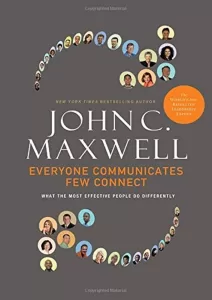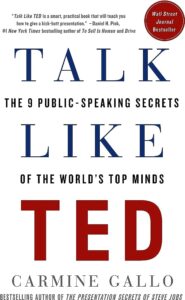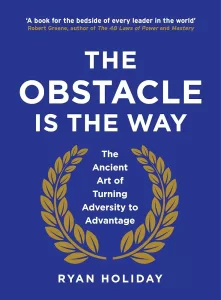Book Review: “Servant Leadership in Action”
Book: Servant Leadership in Action edited by Ken Blanchard and Renee Broadwell
Reviewer: Bobby Powers
My Thoughts: 8 of 10
For years I've believed that developing personal integrity and developing leadership ability are inextricably linked. As character grows, so does leadership. Based upon their recent book, Ken Blanchard and Renee Broadwell agree. Servant Leadership in Action is a guidebook for becoming a person of influence by serving others. Blanchard and Broadwell curate essays from dozens of the world's greatest minds in leadership and communication: Patrick Lencioni, Simon Sinek, Brené Brown, Stephen M. R. Covey, and more. These leaders share their personal experiences with servant leadership and its impact upon employees' careers and lives. The ideas in this book set a high bar that will inspire leaders at every level of the organization.
Takeaways from the Book
What Is Servant Leadership?
- “When people hear the phrase servant leadership, they are often confused. Their assumption is that it means managers should be working for their people, who would decide what to do, when to do it, where to do it, and how to do it. If that’s what servant leadership is all about, it doesn’t sound like leadership to them at all...The problem is that these folks don’t understand leadership--much less servant leadership. They think you can’t lead and serve at the same time. Yet you can, if you understand that there are two parts to servant leadership: (1) A visionary/direction, or strategic, role--the leadership aspect of servant leadership; and (2) an implementation, or operational, role--the servant aspect of servant leadership.” -Ken Blanchard
- “Servant leaders believe that people have an intrinsic value beyond their tangible contributions as workers. As such, the servant leader is deeply committed to the growth of each individual within his or her organization.” -Larry Spears
- According to Raj Sisodia, companies who embrace servant leadership have four defining characteristics:
- "They operate with a purpose other than profit maximization as their reason for being."
- "They seek to create value for all their stakeholders, not just shareholders."
- "Their leaders are motivated by service to the company’s purpose and its people, not by power or personal enrichment."
- "They strive to build cultures infused with trust, openness, and caring instead of fear and stress."
- “Leadership, it turns out, is not about being in charge. Leadership is about taking care of those in your charge.” -Simon Sinek
- “Where weak leaders demand trust be given to them, servant leaders inspire it.” -Simon Sinek

Why Is Servant Leadership Important?
- Self-seeking management sacrifices people for profit, whereas servant leadership puts people first.
- “The existing system has elevated people into positions of leadership who lack the qualities needed to lead in today’s world. These people do whatever it takes to deliver the numbers without regard to human cost or long-term consequences for organizational health.” -Raj Sisodia
- Servant leadership drives deeper employee engagement/fulfillment.
- “Many of the companies named to Fortune magazine’s annual listing of ‘The 100 Best Companies to Work For’ espouse servant leadership and have integrated it into their corporate cultures.” -Larry Spears
- Servant leadership ultimately produces higher profit.
- “In the long run, our research shows that such companies generate far more financial wealth than do traditional profit-centered firms.” -Raj Sisodia
What Does Servant Leadership Look Like?
- “The defining outcome for the servant leader is trust. How do you know if you are a servant leader? The answer is trust. Trust is the litmus test. Trust is to servant leadership what profit is to a business. It’s the outcome. It’s the core measure. The scoreboard.” -Stephen M. R. Covey
- “Leaders must see themselves on the bottom of an upside-down pyramid--that’s where they serve the entire organization using their power, resources, influence, and everything else leadership affords.” -James H. Blanchard
- “In weak leadership environments, all the decision-making power is focused at the top. Leaders in these environments expect information to be pushed up to those in authority positions. Servant leaders do the opposite. They push authority down to those with the information. And in that kind of environment, people feel accountable for and trusted to do the job for which they’ve been trained without leaders putting undue pressure or stress on them or using fear to drive them.” -Simon Sinek
- “We trust that the servant leader will come running our aid. This is what happens inside great organizations. In contrast, in a work environment that lacks good servant leaders, people will go out of their way to follow the rules at all costs, cover up mistakes, and deny accountability.” -Simon Sinek
- “Great leaders are willing servants of people, organizations, and causes. Instead of worrying about how powerful they are or what position they hold, these leaders focus on what others need.” -Marshall Goldsmith
- “The power of the servant leader does not come from their position but from their sacrifice. They are followed not because they are feared by because they are admired. Their gravitas is not based on their title or rank or status, but on their blood and sweat and tears. They have earned the right to lead because they have set the standard for what it means to serve. They choose to serve. They were chosen to lead.” -Erwin McManus
- “Servant leadership understands that our calling is not to overpower but to empower.” -Erwin McManus
Other Insights
- “Awareness is not a giver of solace--it is just the opposite. It is a disturber and an awakener. Able leaders are usually sharply awake and reasonably disturbed. They are not seekers after solace. They have their own inner serenity.” -Robert Greenleaf
- “Only three things happen naturally in organizations: friction, confusion, and underperformance. Everything else takes leadership.” -Peter Drucker
- "If a leader says something is important, people expect that person to live like it's important. The gap between what we say and do as leaders can be lethal." -Mark Miller
- “Only when people feel trusted by and are able to trust their leadership; only when people feel they can make mistakes without fear of dismissal; and only when people feel they can break a rule because it’s the right thing to do without fear of humiliation or retribution will a company ever inspire their people to work at their natural best--our most productive, innovative and cooperative selves. In a strong leadership environment, leaders don’t trust their people to follow the rules--they trust them to know when to break the rules. Rules are there for when things run normally. But sometimes, when things go wrong, following the rules to the letter can actually make things worse.” -Simon Sinek
- “How you see people determines how you serve people. And most of us tend toward the extremes: we see people as either a problem to be avoided or a person to be loved.” -Chris Hodges
- “Humility is personal power under control.” -Tony Baron
- “The final estimate of men shows that history cares not an iota for the rank or title a man has borne, or the office he has held, but only the quality of his deeds and the character of his mind and heart.” -Samuel Brengle
Think you’d like this book?
Other books you may enjoy:
How to Win Friends and Influence People by Dale Carnegie
The 21 Irrefutable Laws of Leadership by John Maxwell
Servant Leadership by Robert K. Greenleaf
Leaders Eat Last by Simon Sinek
Other notable books by the authors:
The One Minute Manager by Ken Blanchard and Spencer Johnson
Leadership and the One Minute Manager by Ken Blanchard, Patricia Zigarmi, and Drea Zigarmi
Gung Ho! by Ken Blanchard and Sheldon Bowles





